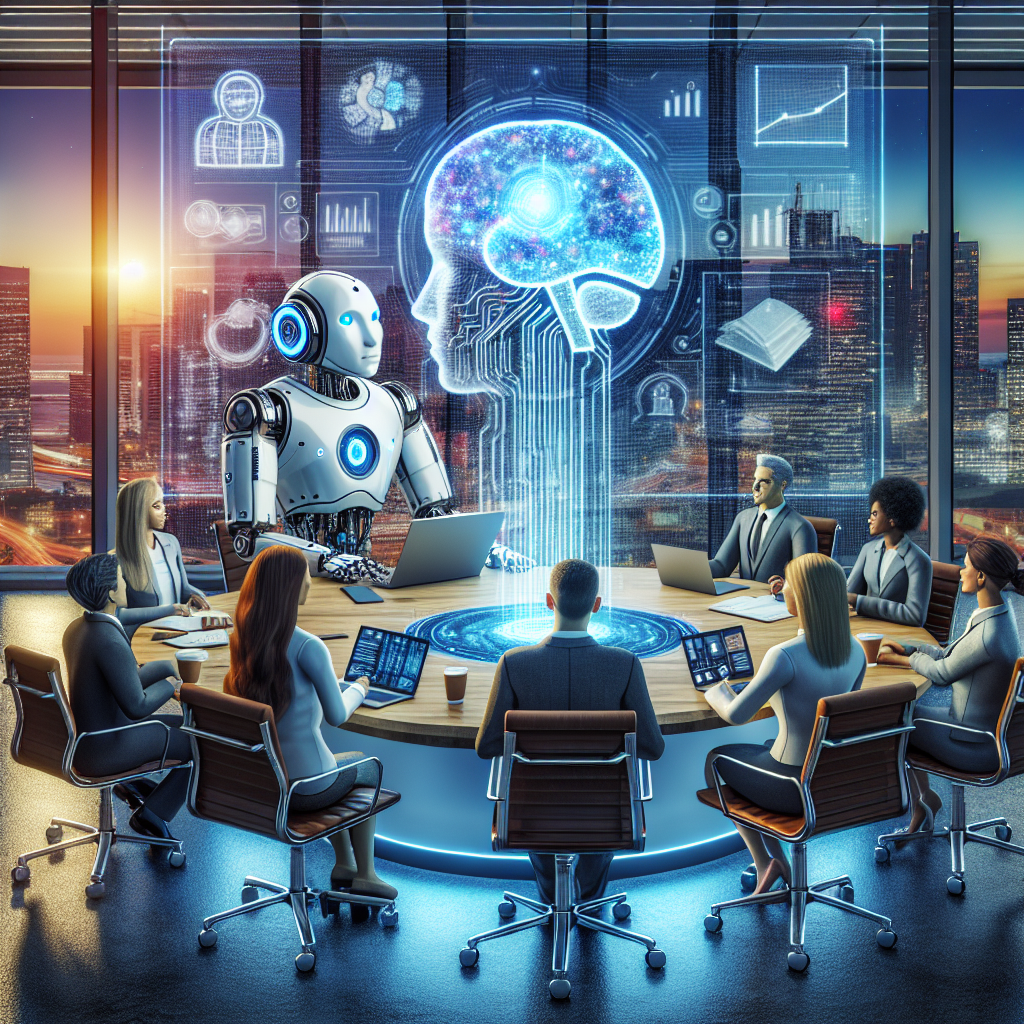Artificial General Intelligence (AGI) is a term that refers to machines that have the ability to understand, learn, and apply knowledge in a manner similar to human beings. While current artificial intelligence (AI) systems are capable of performing specific tasks and solving particular problems, AGI aims to create machines that possess general intelligence and can adapt to a wide range of tasks and situations.
The development of AGI has the potential to revolutionize the job market and change the way we work in unprecedented ways. As AGI becomes more advanced and widespread, it is likely to have a significant impact on the nature of work and the skills required to succeed in the workforce. In this article, we will explore how AGI is shaping the future of work and discuss some of the key implications for the job market.
1. Automation of Routine Tasks
One of the most significant impacts of AGI on the job market is the automation of routine tasks. As machines become more intelligent and capable of learning and adapting, they will be able to perform a wide range of tasks that are currently done by humans. This includes tasks such as data entry, customer service, and basic administrative work.
While automation has the potential to increase efficiency and reduce costs for businesses, it also raises concerns about the impact on jobs. As more tasks become automated, there is a risk that many traditional jobs will become obsolete, leading to widespread job displacement and unemployment.
2. Creation of New Jobs
While automation may lead to job displacement in some sectors, it is also likely to create new opportunities in others. As AGI becomes more advanced, it will open up new possibilities for innovation and creativity, leading to the creation of new industries and job roles.
For example, the development of AGI could lead to new roles in fields such as robotics, artificial intelligence, and machine learning. These emerging industries are likely to require a range of new skills and expertise, creating opportunities for workers to reskill and adapt to the changing job market.
3. Shift in Skills and Education
As AGI continues to evolve, there will be a growing demand for workers with skills in areas such as data analysis, programming, and problem-solving. These skills will become increasingly important as machines take on more routine tasks, leaving humans to focus on more complex and strategic activities.
This shift in skills and education will require workers to adapt and upskill to remain competitive in the job market. Employers will also need to invest in training and development programs to help their workforce acquire the necessary skills to succeed in a rapidly changing environment.
4. Impact on Workforce Diversity
The development of AGI also has the potential to impact workforce diversity in significant ways. As machines take on more routine tasks, there may be a greater emphasis on skills and qualifications, leading to a more meritocratic approach to hiring and promotion.
However, there is also a risk that AGI could perpetuate existing biases and inequalities in the workforce. For example, if the algorithms used in AGI systems are not properly designed and tested, they may inadvertently perpetuate discriminatory practices and reinforce existing inequalities in the job market.
5. Ethical Considerations
As AGI becomes more advanced and widespread, there are also important ethical considerations to take into account. For example, there are concerns about the potential for AGI to be used for malicious purposes, such as surveillance, manipulation, and control.
There are also questions about the impact of AGI on job security, privacy, and autonomy. As machines become more intelligent and autonomous, there is a risk that they may outperform humans in many tasks, leading to questions about the role of humans in the workforce and society more broadly.
FAQs
Q: Will AGI lead to widespread job displacement and unemployment?
A: While the development of AGI has the potential to automate many routine tasks and jobs, it is also likely to create new opportunities in emerging industries and roles. However, there is a risk that some traditional jobs may become obsolete, leading to job displacement in certain sectors.
Q: What skills will be most important in the age of AGI?
A: In the age of AGI, skills such as data analysis, programming, problem-solving, and critical thinking are likely to be in high demand. Workers will need to adapt and upskill to remain competitive in a rapidly changing job market.
Q: How can employers prepare for the impact of AGI on the workforce?
A: Employers can prepare for the impact of AGI by investing in training and development programs to help their workforce acquire the necessary skills and expertise. They can also explore opportunities to automate routine tasks and create new roles that leverage the capabilities of AGI.
In conclusion, the development of AGI has the potential to revolutionize the job market and change the way we work in unprecedented ways. While automation may lead to some job displacement in certain sectors, it is also likely to create new opportunities in emerging industries and roles. As AGI continues to evolve, it will be important for workers, employers, and policymakers to adapt and respond to the changing dynamics of the job market to ensure a smooth transition to the age of artificial general intelligence.

